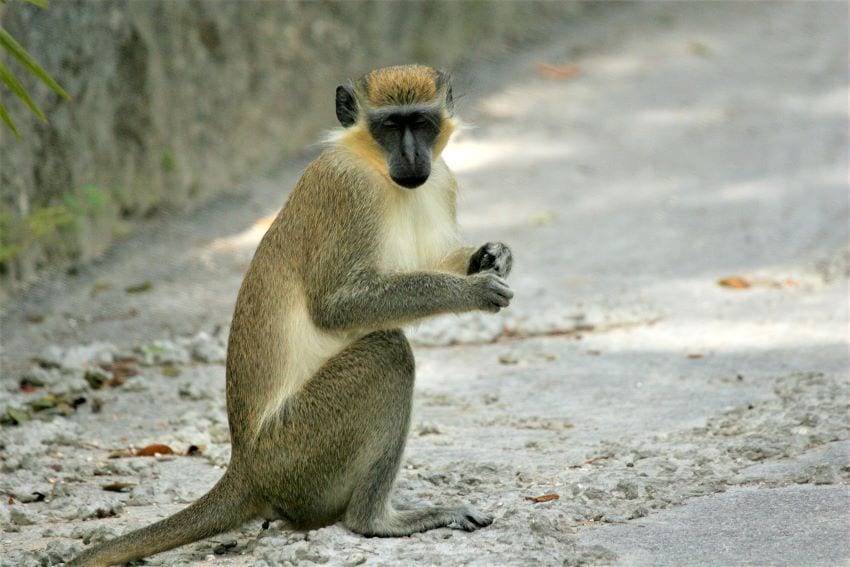
An animal population without any natural predators, with a lot less food and more hiding spaces are key factors that explain the explosion of the monkey population in Barbados and the related challenges experienced by residents and farmers.
This was revealed yesterday by Chief Agricultural Officer, Keeley Holder, as she appeared on VOB’s Brass Tacks programme with moderator Corey Lane and examined the issue of the monkey population in Barbados, its threat to agriculture and methods needed to protect and control these primates.
Elaborating on there being no natural predator to control this primate, Ms. Holder said the animal, which came to Barbados some 400 years ago, was not native, and as a result, its natural predators, such as leopards, eagles, and pythons, were non-existent, leaving its control up to humans.
On the issue of monkeys foraging for food, she noted that in the last 50 years, there had been a three-fold decrease in the actual habitat of the island’s monkey population, offsetting its feeding ability.
She recounted: “In the 1960s, we had about 54,000 acres of arable land. According to reports from 2017, Town Planning, we now have less than 28,000 acres of arable land and we are losing about 400 acres per year.
“And then where monkeys used to feed on sugar cane, we’ve had a decline in cane production and so there is even less food available to monkeys, about a third less food that would be available.”
She explained the third factor against the backdrop of the amount of forest/woodland in Barbados having increased by seven and a half times, in the last 50 years.
“So, whereas in 1964, we had about two per cent of land that was woodland, by 2015, FAO (Food and Agricultural Organization) is saying basically we have about 15 per cent of our land in forest,” Ms. Holder stated.
Acknowledging that these factors meant monkeys now have a larger amount of space to hide, she added that along with land, which may not be actively involved in agriculture, there is now a secondary woodland being developed that allows monkeys opportunities to traverse through these areas to enter their original woodland areas. “
Summing up what this suggested, the Chief Agricultural Officer stressed: “With no natural way to keep our population in balance, less food to eat, more places to hide out, the population really is just too big for its habitat and the only real solution is that we need a human intervention to keep the population in check.”
Ms. Holder, who maintained that the overpopulation of any species was bound to disrupt the natural ecosystem, said that as part of the stewardship of humans, there was a need to ensure that this was corrected to maintain balance within the ecosystem.
